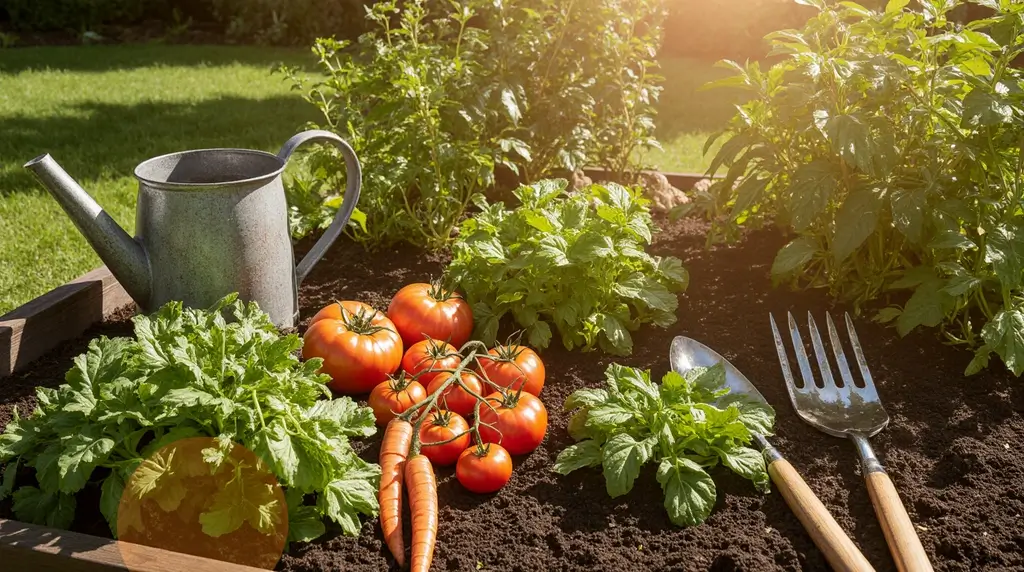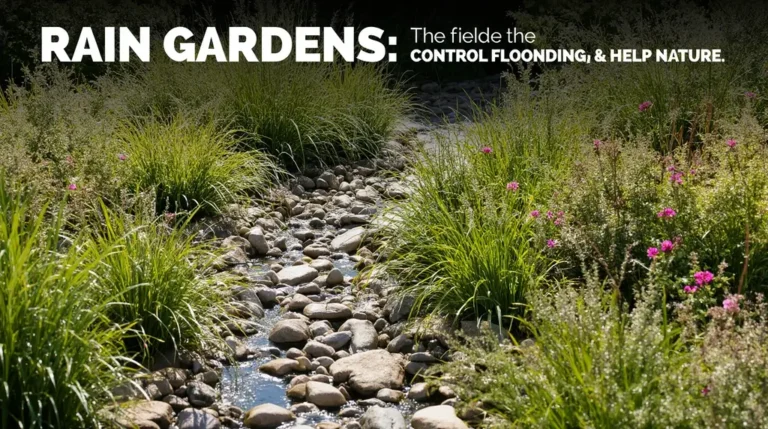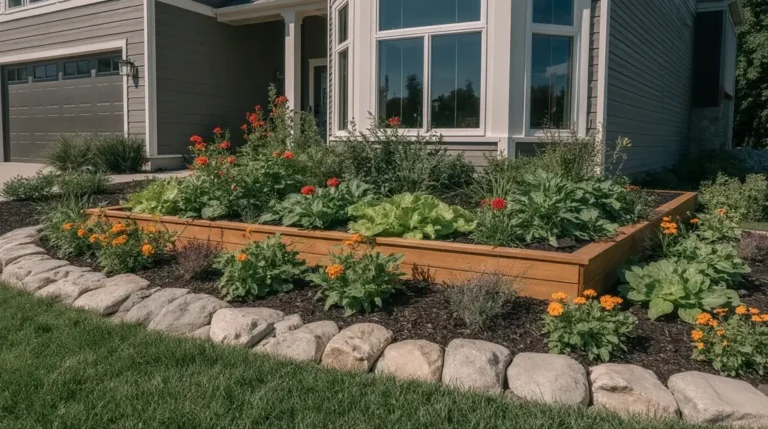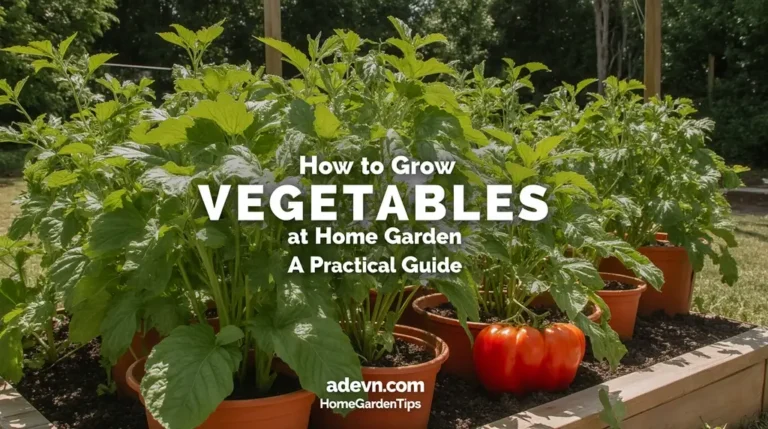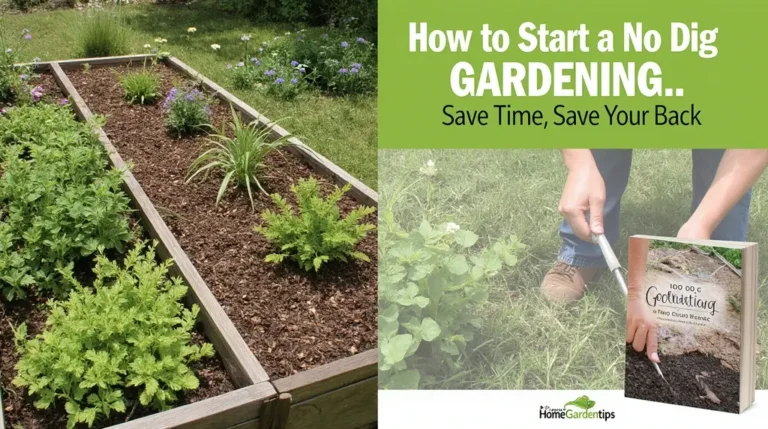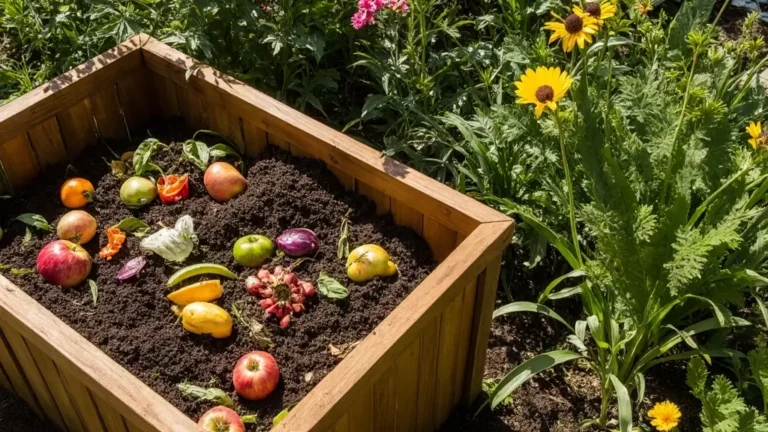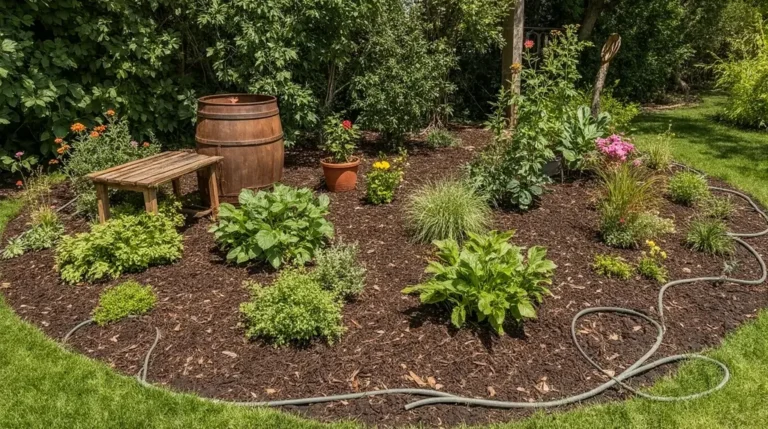Organic Vegetable Gardening: A Beginner’s Guide now
Table of Contents
Introduction To Organic Vegetable Gardening
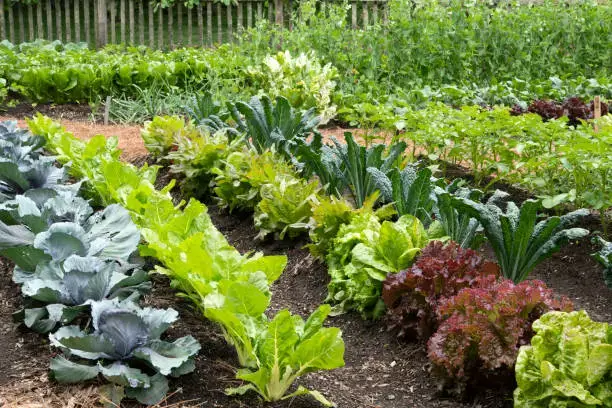

So you’re thinking about starting your own organic vegetable gardening adventure? Trust me, it’s one of the best decisions you’ll ever make! I know it might seem a bit overwhelming at first (I’ve been there), but once you taste that first tomato you’ve grown yourself, you’ll be completely hooked. Whether you’re worried about what’s in your food, want to help the planet, or just tired of paying crazy grocery prices, learning to grow organic food at home is totally worth it. I’m going to walk you through everything you need to know, sharing all the beginner garden tips I wish someone had told me when I started. If you’re interested in eco-friendly gardening, don’t miss our Sustainable Gardening Tips: How to Grow More with Less Water for more tips.
Why Go Organic? (Spoiler Alert: It’s Amazing!)


Look, I could give you a bunch of scientific reasons, but here’s the real deal – organic gardening just makes sense on so many levels.
Your Health Will Thank You
When you grow your own veggies, you know exactly what’s going on them. No mystery chemicals, no weird preservatives – just good, clean food. And honestly? Homegrown organic vegetables taste SO much better than anything you’ll find at the store. Plus, they’re packed with more vitamins and nutrients because you’re eating them fresh, not after they’ve traveled thousands of miles in a truck.
I remember the first time I ate a salad made entirely from my garden. It was like tasting vegetables for the first time – so much flavor and crunch! Your body gets all the good stuff without any of the chemicals that make you wonder what you’re actually eating.
You’ll Be an Earth Hero
Okay, maybe that sounds dramatic, but it’s true! When you garden organically, you’re creating this little ecosystem in your backyard. I love watching all the beneficial bugs, birds, and even the occasional toad that have made my garden their home. No harmful runoff, no nasty chemicals seeping into the groundwater – just nature doing its thing.
And here’s a cool bonus: composting your kitchen scraps means less trash in landfills. I feel pretty good about turning my coffee grounds and banana peels into black gold for my plants!
Your Wallet Will Love It Too
This is where it gets really fun. That $3 tomato plant? It’ll give you like 15 pounds of tomatoes worth $50+ at the grocery store. I did the math once and nearly fell over. Seeds are even cheaper – one packet can feed your family all season long. After a couple of years, you can even save seeds from your best plants. It’s like getting free vegetables forever!
Finding the Perfect Spot and Getting Your Soil Ready


Alright, let’s talk about setting up your garden for success. Don’t stress too much about making it perfect – gardens are forgiving!
Location, Location, Location
Your veggies are basically sun worshippers, so find the sunniest spot in your yard. Most vegetables need about 6-8 hours of direct sunlight, and trust me, they’ll let you know if they’re not getting enough by looking sad and refusing to produce much. For a greener and more environmentally conscious garden, check out our How to Start a no dig gardening: Save Time, Save Your Back.
Here’s something I learned the hard way: put your garden somewhere you can easily reach with a hose. That first summer, I planted way out in the back corner of our yard, and by August, I was dragging hoses around like I was training for some weird Olympic sport. Not fun!
Also, avoid those low spots where water pools after it rains. Vegetables hate having wet feet – it’s like giving them root rot, which is as unpleasant as it sounds.
Making Your Soil Happy
Good soil is like a good foundation for a house – everything depends on it. Don’t worry, you don’t need to be a soil scientist! Most vegetables like soil that’s slightly acidic to neutral (pH 6.0-7.0 if you want to get technical). You can grab a simple soil test kit at any garden center.
Here’s the secret sauce: compost! Your soil absolutely loves organic matter. I add about 2-4 inches of compost to my beds every season, and my plants go crazy for it. It’s like giving them a gourmet meal instead of fast food.
Making your own compost is easier than you think. Just throw your veggie scraps, coffee grounds, and yard waste in a pile. Skip the meat and dairy (unless you want to attract every raccoon in the neighborhood). In a few months, you’ll have this amazing, dark, crumbly stuff that your plants will worship you for.
The Best Starter Veggies (AKA the Confidence Builders)
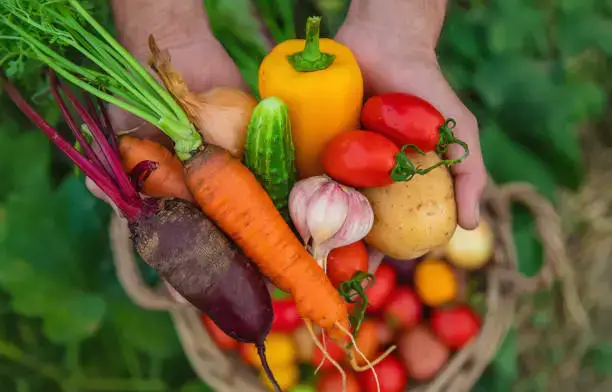

Let me save you some heartbreak and recommend the vegetables that’ll make you feel like a gardening genius right from the start.
Tomatoes: The Garden Rockstars
Okay, I have to start with tomatoes because they’re just… wow. Nothing beats a homegrown tomato. Nothing! Cherry tomatoes are especially great for beginners because they’re practically indestructible and produce like crazy.
Just remember: tomatoes are total warmth lovers. Don’t rush them outside too early, or they’ll just sit there looking miserable. And definitely get them some support – these plants get heavy when they’re loaded with fruit, and there’s nothing sadder than a broken tomato plant.
Lettuce and Leafy Greens: The Instant Gratification Squad
If you’re impatient like me, leafy greens are your best friends. Some varieties are ready to eat in just a month! Lettuce, spinach, arugula – they’re all pretty foolproof and super forgiving.
Here’s a pro tip I picked up: plant a new row every couple of weeks. That way, you’ll have fresh salad all season long instead of 50 heads of lettuce all ready at the same time (been there, done that, gave away SO much lettuce).
Carrots: The Underground Surprise
Carrots taught me patience, and boy, do they test it! But pulling up that first perfect carrot is like finding buried treasure. The key is loose, fluffy soil – carrots hate rocks and hard clay. If your soil is tough, try shorter varieties or grow them in containers.
Fair warning: carrot seeds take forever to germinate (like 2-3 weeks), and you’ll think you did something wrong. You didn’t! Just keep the soil moist and wait. Trust the process.
Feeding Your Plants the Natural Way
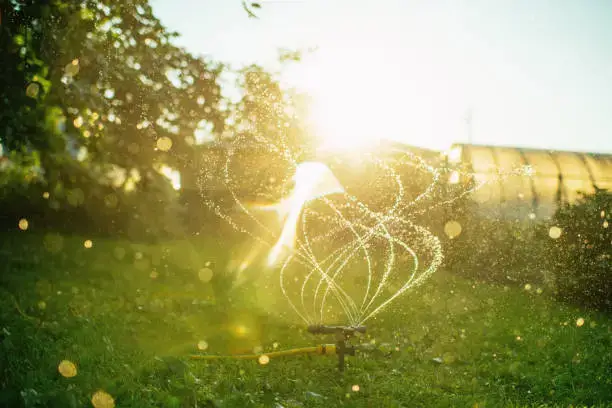

Forget all those synthetic fertilizers with unpronounceable names. Your plants want real food, just like you do!
Composting Made Simple
Think of composting like making a recipe. You need “browns” (dry leaves, paper) and “greens” (veggie scraps, grass clippings) mixed together with a little water. Turn it occasionally, and boom – plant food gold!
A good compost pile should smell like a forest floor, not like… well, you know. If it stinks, you probably need more browns and less water.
Natural Fertilizer Options
Fish emulsion might smell weird, but plants absolutely love it. Bone meal gives roots a boost, and kelp meal is like a multivitamin for plants. Just follow the directions on the package – more isn’t always better, and you can actually harm your plants by overdoing it.
Dealing with Garden Crashers (Without the Nasty Chemicals)
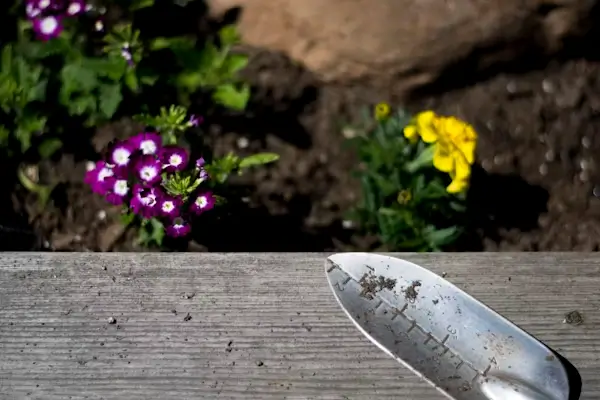

Every garden has uninvited guests, but you don’t need to nuke them with chemicals. Here’s how to handle the troublemakers naturally.
Prevention is Your Best Friend
Healthy plants are like people with strong immune systems – they just handle problems better. Give your plants good spacing, water at the soil level (not on the leaves), and clean up any sick-looking stuff right away.
Invite the Good Guys
This is my favorite part! Plant some flowers around your garden to attract beneficial insects. Ladybugs, lacewings, and other helpful bugs will take care of the bad guys for you. It’s like having a tiny army protecting your vegetables.
Marigolds are especially good at this, plus they’re pretty and easy to grow. Win-win!
Natural Pest Control That Actually Works
Diatomaceous earth (get the food-grade stuff) is like microscopic glass that damages soft-bodied pests. Neem oil messes with bug life cycles without hurting the good insects. And insecticidal soap is great for aphids – just spray it right on them.
Row covers are basically like putting a protective blanket over your plants. Just remember to remove them when flowers appear so bees can do their pollination thing!
Watering Like a Pro (Without Drowning Your Plants)
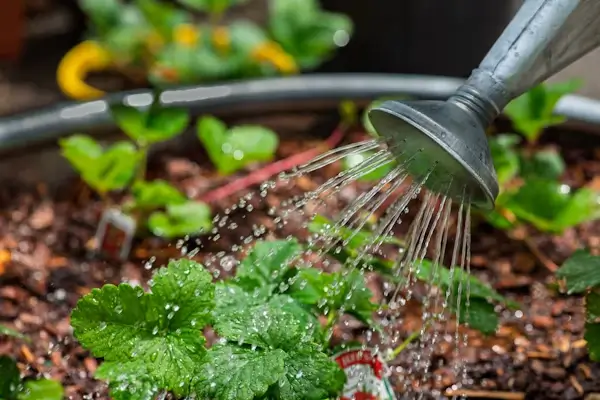

Watering seems simple, but there’s definitely a right way and a wrong way to do it.
The Deep and Infrequent Method
This was a game-changer for me: water deeply but less often. It encourages roots to grow deep instead of staying shallow and wimpy. I water early in the morning so plants have time to dry off before nightfall (wet leaves at night = disease party).
Drip irrigation or soaker hoses are amazing if you can swing it. They put water right where the roots are without wasting any.
Smart Water Tricks
Rain barrels are awesome for collecting free water, and your plants actually prefer rainwater to the chlorinated stuff from the tap. I also put mulch around my plants to keep moisture in and weeds out.
The finger test works great for checking soil moisture – just stick your finger about 2-3 inches into the soil. If it’s dry down there, it’s time to water.
Year-Round Growing (Yes, Really!)
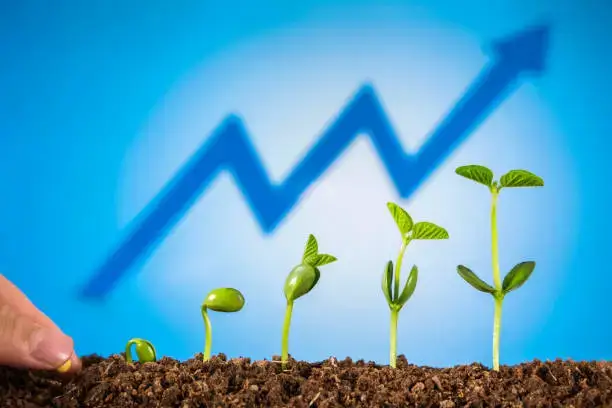

Don’t let winter stop your gardening fun! With a little planning, you can have fresh veggies almost year-round.
Spring: The Comeback Season
Cool-season crops like lettuce and peas actually like chilly weather, so you can start them while it’s still pretty cold. Warm-season lovers like tomatoes have to wait until the soil warms up and frost danger is over.
Summer: The Hot and Heavy Season
Some plants just can’t handle the heat, so give them a little shade during the worst part of summer. This is when heat-lovers like okra and eggplant really shine.
Fall and Winter: The Surprising Seasons
This blew my mind: lots of vegetables actually taste better after a light frost! Kale, Brussels sprouts, and carrots get sweeter in cold weather. Cold frames and row covers can keep you harvesting well into winter.
Just Start Already!
Look, here’s the thing – you don’t need to know everything before you begin. I sure didn’t! Start small, maybe with a 4×4 raised bed or even some containers on your patio. Pick a few easy crops and focus on learning those well.
Keep notes about what you plant and how it does. This stuff is gold for planning next year’s garden. And definitely connect with other gardeners – we love talking about our plants, and most of us are happy to share seeds, advice, and probably way too many zucchini.
Remember, every expert was once a beginner who killed a few plants and learned from it. Embrace the failures – they make the successes even sweeter!
The Bottom Line: Just Do It!
Organic vegetable gardening is honestly one of the most rewarding hobbies you can have. Sure, there’s a learning curve, but the payoff is incredible. Fresh food, money saved, helping the environment – it’s all good stuff. For smarter water use in your garden, check out our Rain Gardens: Control Flooding and Help Nature.
The beginner garden tips I’ve shared here will get you started, but gardening is really about learning as you go. Every season brings new challenges and successes, and that’s what makes it so addictive.
Start with the easy stuff, focus on healthy soil, and work with nature instead of fighting it. Be patient with yourself – both you and your plants need time to figure things out.
That first bite of a sun-warmed tomato from your own garden will remind you why you started this journey. Each year, you’ll get better, try new things, and probably become that person who gives away bags of vegetables to anyone who’ll take them.
So what are you waiting for? Your future self (and your taste buds) will thank you for starting today. Trust me on this one – growing organic food at home is going to change your life in the best possible way!
Is organic gardening harder for beginners?
Not necessarily. It mainly requires learning a few natural methods instead of relying on chemicals. Once you understand soil health, watering, and plant care, it becomes just as easy—and often more rewarding.

